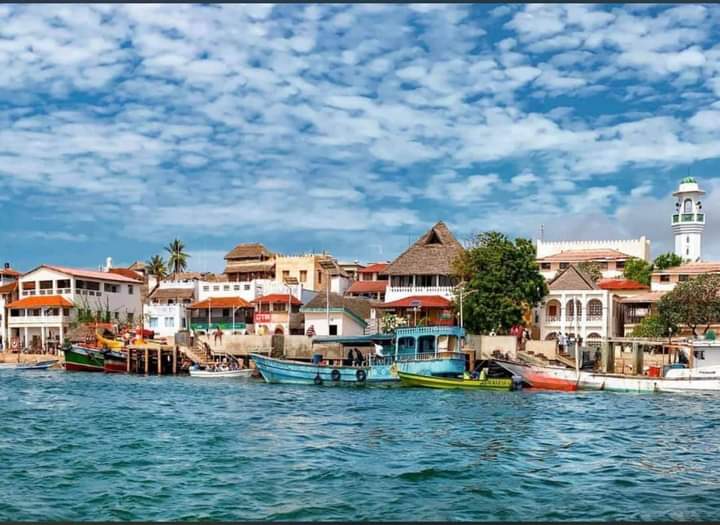
Discovering Lamu Cultural Festival: A Vibrant Celebration in Lamu County
Experience the Lamu Cultural Festival, a vibrant celebration of Swahili heritage close to Mpeketoni in Lamu County. This festival offers travelers an accessible blend of history, traditional performances, and coastal charm, making it a must-visit for culture enthusiasts and adventure seekers alike.
Stay Hydrated
The coastal heat and constant movement through busy streets demand frequent hydration. Carry a refillable water bottle and drink regularly to avoid fatigue.
Wear Comfortable Footwear
Cobblestone streets and sandy paths require supportive shoes with good grip to avoid slips and discomfort during long festival walks.
Plan Around High Tide
Dhow races and some waterfront activities depend on tides. Check local tide schedules to catch the best views without unexpected delays.
Respect Local Customs
Engage respectfully with festival events—ask permission before photographing people and participate only when invited to maintain cultural integrity.
Discovering Lamu Cultural Festival: A Vibrant Celebration in Lamu County
Every November, the heartbeat of Kenya’s coast quickens as Lamu Town comes alive with the Lamu Cultural Festival, a vivid showcase of Swahili heritage and coastal traditions just a short trip from Mpeketoni in Lamu County. This festival isn’t just an event—it’s an immersive invitation to engage with the region’s proud history, spirited performances, and a community fiercely protective of their cultural identity.
Set against Lamu’s narrow streets and ancient coral stone buildings, the festival’s energy pulses through dhow races slicing the ocean, rhythmic performances escalating under the sun, and artisans demonstrating crafts honed over generations. The nearby town of Mpeketoni serves as a practical base with easy transport options—buses and boat rides link these coastal hubs efficiently.
Beyond its vibrancy, the festival offers a practical lens into local life through traditional cooking sessions, Swahili poetry readings, and guided walking tours. Eager travelers should plan for daytime temperatures in the high twenties Celsius—light, breathable clothing and sturdy walking shoes will carry you comfortably through cobbled alleys and bustling market spaces. Hydration is crucial, as the coastal breeze occasionally grows warm and heavy.
Getting early access through local guides lets you navigate the festival’s multiple venues without the confusion of first-timers, making it easier to spot smaller performances and unique, lesser-known cultural exhibits. The dhow race day will reward early risers with sweeping sea views and the celebration’s spirited crescendo. For practicalities, carry cash for small vendors and be ready to embrace crowds with patience—this is a gathering fiercely protective of its atmosphere and cultural ownership.
The cultural festival is as much about interaction as observation. Learn to greet in Kiswahili, ask questions respectfully, and try participating in dance events—these moments transform travelers into welcomed guests. As the sun dips, the town's lantern-lit streets create an atmosphere both genuine and charged, finishing each day with a quiet reminder of a culture that lives actively in its people.
In sum, the Lamu Cultural Festival near Mpeketoni offers more than sights and sounds; it hands you a practical experience where history, art, and human spirit meet. Prepare well, respect fully, and you’ll gain not just memories but a deeper understanding of Kenya’s coastal heart.
Nearby Trips
All Adventures
Boat Charters
Water Activities
Adventures near Mpeketoni, Lamu County, Kenya
Discover the unique and memorable adventures that make Mpeketoni, Lamu County, Kenya special.
Frequently Asked Questions
What makes the Lamu Cultural Festival unique compared to other festivals in Kenya?
Lamu Cultural Festival uniquely highlights Swahili culture through dhow races, traditional music, and community-led crafts rather than mainstream Kenyan cultural elements, offering an authentic coast-focused experience.
Are there guided tours available during the festival?
Yes, local guides offer walking tours through Lamu Town’s historic sites and festival venues, providing insights into both the culture and layout of the event, which enhances navigation and understanding.
Which traditional foods should I try at the festival?
Don't miss samples of Swahili dishes like "Biryani," "Mtori" (banana and beef soup), and freshly caught seafood grilled along the waterfront, which represent coastal flavor profiles deeply entwined with festival celebrations.
Is the festival family-friendly?
Absolutely. The festival includes family-oriented performances, craft workshops for children, and safe, walkable areas, making it suitable for all ages.
What environmental considerations should visitors keep in mind?
Respect local waste disposal rules and avoid single-use plastics to help preserve the marine environment and historical sites. Support eco-conscious vendors and guides to encourage sustainable tourism.
Are there any safety concerns related to crowds and transport during the festival?
While generally safe, the festival attracts large crowds. It’s essential to stay vigilant, keep valuables secure, and arrange transport in advance, as public options may be limited or crowded.
Recommended Gear
Lightweight walking shoes
Durable shoes with good traction to navigate cobblestone streets and sandy areas comfortably.
Sun protection (hat and sunscreen)
Vital for protecting skin from strong coastal sun during outdoor events and walking.
Reusable water bottle
Keeps you hydrated while minimizing plastic waste during the festival’s busy days.
Lightweight rain jacket
Useful during unexpected coastal rains without adding extra bulk.
Local Insights
Hidden Gems
- "Quiet alleys behind the old fort offer peaceful views and street art beyond main festival spots"
- "Shimoni Beach, a short dhow ride away, provides an untouched coastal escape after festival days"
Wildlife
- "Keep an eye out for resident mangrove kingfishers and rare sea turtles nesting along the coast during the festival season"
History
"Lamu Town is a UNESCO World Heritage site, with architecture reflecting centuries of trade between Africa and the Arabian Peninsula, visible in the festival crafts and performances."
